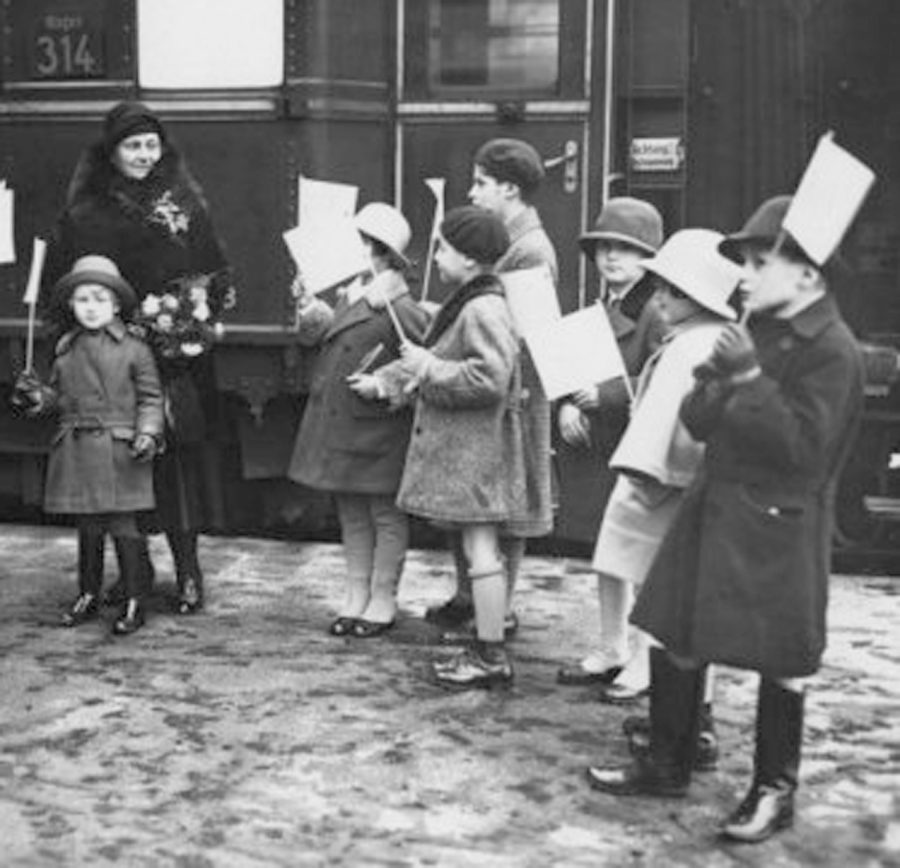Montessori revolutionizes education for children with learning disabilities
March 18, 2021
Women’s History Month highlights the plethora of female inspirations throughout history, and every year that list grows longer as we discover the hidden activists, scientists, writers and geniuses that conventional history has failed to honor.
Among that list is a name that many will not recognize but all should know: Maria Montessori.
Montessori is the woman responsible for the Montessori Method, an educational method that highlights a child’s natural ability to learn from themselves and the environment in which they are surrounded. She was one of the first proponents of progressive education and spent decades
crafting and teaching her method.
Born in 1870 as Maria Tecla Artemisia Montessori in Chiaravalle, Italy, Montessori grew up surrounded by an appreciation for knowledge and education. Her father was a successful financial manager and her mother was a voracious reader, a trait considered uncommon for a woman in the late 1800s.
Montessori was a boundary breaker from a young age. At just 13 years old, Montessori attended an all-boys technical institution with the goal of becoming an engineer. As years passed, she found her true calling was, in fact, in medicine.
Despite being rejected by the University of Rome’s medical program, Montessori persevered and completed enough preliminary courses to attend medical school.
“I know I will become a doctor,” she boldly proclaimed at her university interview.
Her initial years were difficult due to the discrimination she faced from male colleagues but like all strong women in history, Montessori never gave up. She graduated in 1896 and became one of Italy’s first female physicians.
Montessori’s legacy stems from her focus on education, but she also spent a great deal of her life as an advocate for feminism and social change. In 1896, she spoke at the International Congress for Women in Berlin, where she argued for equal treatment and wages for working women.
Her career in childhood education began with her visits to a children’s asylum as part of a psychiatric research program. Montessori possessed a keen talent for observation and saw that the children’s detrimental behavior resulted from a lack of sensorial stimulation. Her research
quickly shifted to focus on children with learning disabilities.
Montessori’s research inspired her to envision a world in which education could change the sociopolitical landscape of not only Italy, but the world.
In her 1897 address at the National Medical Congress in Turin, she made one of the most controversial educational statements of the time, arguing that the severe lack of “adequate provision for children with mental and emotional disorders” was actually the source of their “delinquency.”
Montessori firmly believed that so long as children possessed the provisions to learn, regardless of socioeconomic stature, they could do so without fail. This led to the opening of Casa dei Bambini, the world’s first Montessori institute.
Casa dei Bambini, or “Children’s House,” opened its doors in 1907 as part of an effort to educate the minute population of children in San Lorenzo, which was known at the time as the “shame of Italy.” Montessori presented these children with an array of activities and kept the ones that most engaged the children.
Through observation she came to realize that when children are placed in an environment in which activities are designed to bolster natural neurodevelopment, the children can teach themselves.
Casa dei Bambini quickly sparked both national and international interest due to its rapid success.
Dignitaries traveled far and wide to witness Montessori’s “miracle children” who could not only read and write by age 5 but also exhibited impressive levels of concentration, attention and discipline. By 1908, four other institutions were created with the goal of mirroring the first Casa dei Bambini’s success.
Montessori went on to new frontiers by creating institutions for both young children and adolescents. She acknowledged that adolescents required an environment in which the activities promoted self-understanding and global perspective.
Montessori education has evolved since its establishment in 1907, but its basic tenets remain the same.
Respecting the child, understanding the child’s sensitive learning periods and ensuring that the role of the teacher is to observe and guide rather than punish and enforce is what has made the Montessori method a success that has far outlived its creator.
Currently, nearly 20,000 Montessori schools exist worldwide, with 5,000 operating in the United States.
Modern studies on the undeniable efficacy of Montessori education have proved that Montessori’s method was more than a stroke of genius — it is a method with everlasting effects on a child’s ability to learn, absorb and gain independence.
Household names such as Amazon CEO Jeff Bezos and co-founder of Google Larry Page are testaments to this statement, as both men attended Montessori preschools.
Montessori will be honored in history as an educational pioneer and feminist icon. Her legacy has continued to aid in the development of both children and adolescents for more than a century and will continue to do so in the years that follow.







